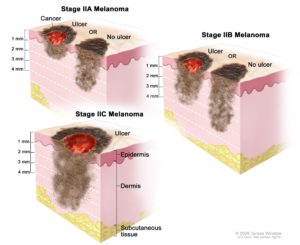By: Cara McErlean
As we enter the darkest months of the year, Americans young and old seek out the artificial alternative to natural sunlight: tanning beds. This year however, several big changes are on the horizon for users of indoor tanning beds.
On Friday December 18, The US Food and Drug Administration published a report on their website which proposed several new rules, one of which would restrict the use of indoor tanning products (such as booths and beds) to adults over the age of 18. With this new policy, the FDA aims to protect minors from the harmful effects of UV radiation. The UVA and UVB rays emitted by indoor tanning products are proven to increase one’s risk for a host of health problems, especially melanoma, the deadliest form of skin cancer.

According to the National Conference for State Legislatures, 12 states (California, Delaware, District of Columbia, Illinois, Louisiana, Minnesota, Nevada, New Hampshire, North Carolina, Oregon, Texas, and Vermont) have already banned the use of tanning beds for all minors under 18. At least 42 states regulate minors indoor tanning in some way, whether it is an outright ban or a parental consent form. Now, the FDA is pushing for federal laws that would ban tanning beds for all American minors.
In their recent report, the FDA also highlighted several other proposed laws. The administration wishes to require adults to sign a document acknowledging all possible health risks “before their first tanning session and every six months thereafter.” They also plan on improving the safety precautions on tanning products by requiring more prominent warning labels, emergency “panic buttons,” and protective eyewear regulations.
While tanning beds have possible carcinogenic effects on all users, young users are at an increased risk for developing skin cancer. The effects of UV radiation add up over one’s lifetime, the FDA explains. That means that the earlier a person starts to use tanning beds, the greater their risk of skin damage becomes. In 2006, the International Agency for Research on Cancer, or IARC, released a study that found “the risk of cutaneous melanoma is increased by 75% when the use of tanning devices starts before age 30.”
Prior to 2009, the IARC classified tanning devices as “possibly carcinogenic to humans.” After releasing a series of studies that examined the effects of indoor tanning over the past 25 years, the IARC moved tanning beds into their highest cancer risk category: “carcinogenic to humans.”
In their studies, the IARC found definite correlation between indoor tanning and two forms of skin cancer: squamous cell carcinoma and melanoma. Skin cancer is the result of DNA damage caused by UV-A and UV-B radiation. While UV rays are present in natural sunlight, the FDA explains that tanning beds may include them in more powerful (and harmful) concentration.
“Although some people think that a tan gives them a ‘healthy’ glow, any tan is a sign of skin damage,” said Sharon Miller, FDA scientist and expert on UV radiation and tanning.
Skin cancer is the most severe consequence of indoor tanning, but there are also other possible effects on the body. According to the FDA, UV rays can cause premature wrinkles and loss of skin elasticity. Eye damage is also a risk if proper eye protection is not worn.

Tara Blackburn, Hershey High School nurse, has noticed the popularity (or unpopularity) of tanning at Hershey.
“You see it mostly at prom and homecoming season…You can tell which students are hitting the tanning booths.” Blackburn said.
Blackburn believes that the most important thing for teens to do before indoor tanning is to know the health risks. There are dangers such as cancer, Blackburn reminds students, that can last your whole life. Blackburn also implores teens to research the tanning facility they will be using, for sanitary conditions may not be up to par.
“When you’re 18, you think you’re invincible,” Blackburn said. “You don’t realize the long term effects.”
It is also important for teenagers to discuss the effects of indoor tanning with their parents, Blackburn says. Parental consent is required in Pennsylvania, according to the Nation Conference of State Legislatures, so parents must be informed on what they are allowing their children to do. Everyone must be aware of cancer risks, even if they only tan once, Blackburn said.
“Everyone thinks it’s not going to happen to them, but you can never be sure.” Blackburn adds.






